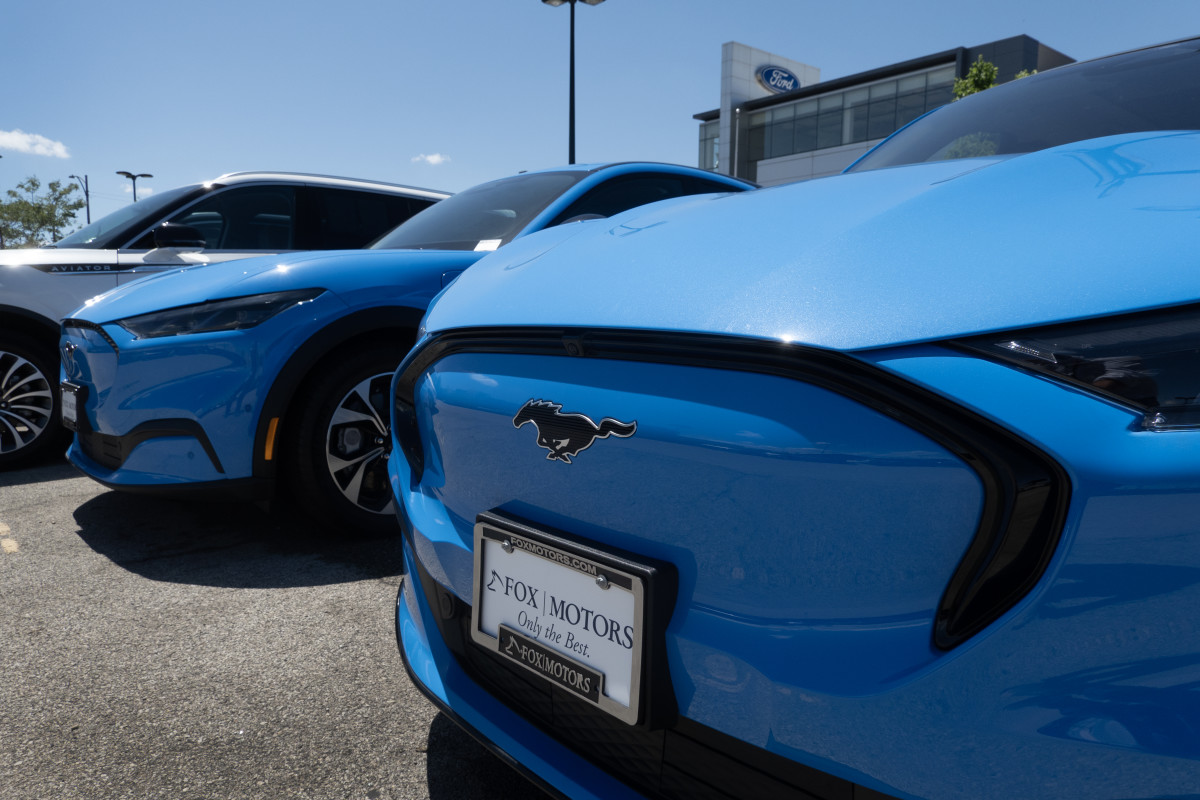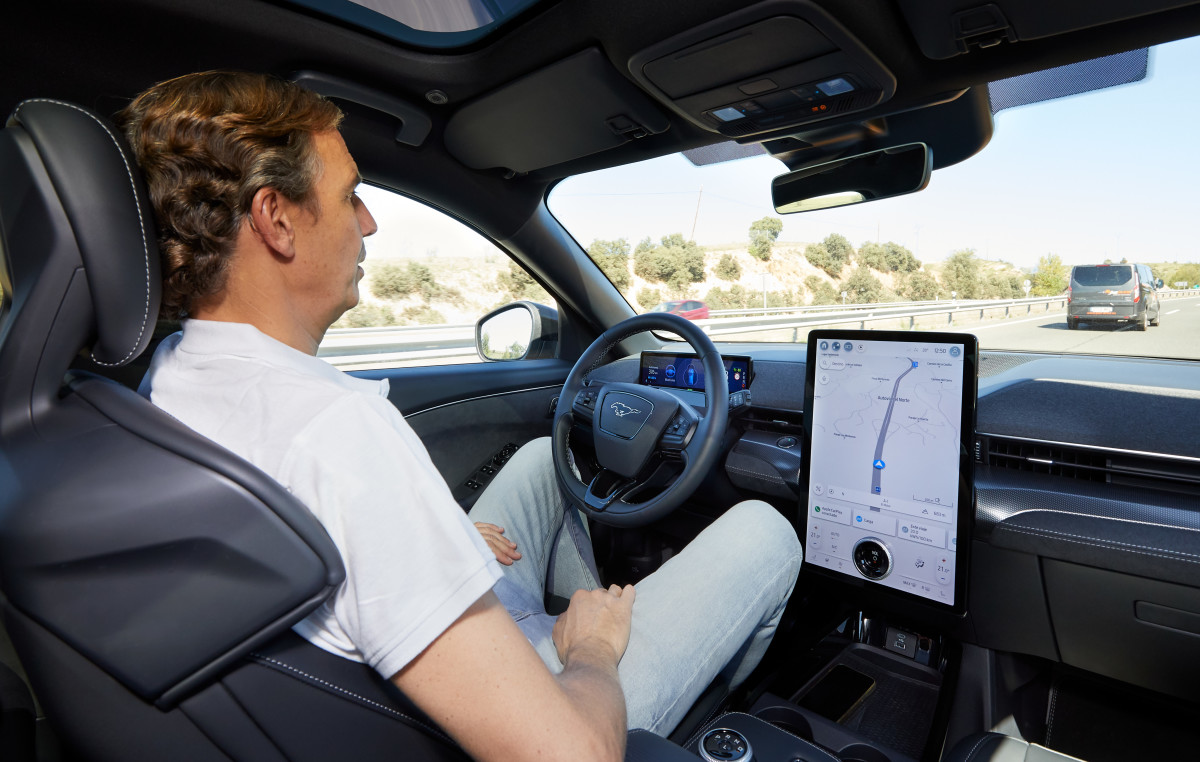
On Ford's (F) website, the Dearborn-based automaker claims that its BlueCruise hands-free driving system is designed "to help make driving easier, more enjoyable, and less stressful," turning "stressful situations" like the daily commute "into opportunities to refuel, physically and mentally, and arrive at your destination more energized."
Though Ford markets this technology as an effortless way for its drivers to "let go," a new development raises questions about the safety of this technology and similar tech installed in cars that drive alongside us.
Related: Ford execs make DEI U-turn, detour from 'woke' past

Ford
Another deadly crash
Police in Pennsylvania are issuing double homicide charges against the driver they accuse of causing a highway crash in Philadelphia that left two people dead back in March, according to a report by the Associated Press.
State and federal investigators say that 23-year-old pre-med student Dimple Patel was under the influence of alcohol when her Ford Mustang Mach-E hit the stationary car of Tolobek Esenbekov, who stopped on the left shoulder of Interstate 95 to help out another person, Aktilek Baktybekov, whose car broke down at around 3 a.m. on March 3.
The resulting collision involved 4 vehicles and killed both people.
Related: Ford’s latest in-car tech will make driving very annoying
Investigators said that Patel was driving at about 71 mph and using both Ford BlueCruise and Adaptive Cruise Control at the time of the crash. Local authorities argue, however, that she should have been prepared to control the car.
“No partially automated vehicle technology should ever be left alone to perform the driving tasks that are required to safely navigate the roads of the commonwealth,” the Pennsylvania State Police said in a statement.
The charges that Patel is facing include homicide by vehicle while driving under the influence and involuntary manslaughter. Police say that she turned herself in on Sept. 3 on the charges filed.
More Business of EVs:
- Waymo finds new way to bring chaos to quiet city streets
- Gavin Newsom's 'EV mandate' is under U.S. Supreme Court threat
- BMW's clever, new EV app is a privacy nightmare
The driver or the software?
Patel's defense attorney Zak Goldstein told the AP that he hasn't seen the criminal complaint or any reports on the crash yet but called the deaths a tragedy.
However, he argues that the two deaths should not be placed on Patel but on Ford itself, noting that in the Commonwealth of Pennsylvania, DUI-related homicides require “that the DUI caused the homicide.”
“If in fact it’s a failure in a self-driving or a driving system, that may not be a homicide by DUI even if the driver is intoxicated,” he told the AP, adding that the case may be a first of its kind in Pennsylvania.
Under the microscope
Ford told the AP that it has collaborated with the National Transportation Safety Board (NTSB) and the National Highway Traffic Safety Administration (NHTSA) on the crash investigation.
The crash itself was the second of its kind in 2024, following a February 2024 crash on Interstate 10 in San Antonio, Texas, where another Mach-E with BlueCruise enabled struck and killed the driver of a disabled Honda CR-V that was stranded in the middle lane without its lights on.
The NHTSA on April 29 said it had launched a preliminary investigation into Ford’s BlueCruise. The agency seeks to determine whether a more widespread investigation is needed and whether a recall to improve its safety is necessary.
The probe will look into BlueCruise's abilities and the effectiveness of in-car driver monitoring cameras. Although BlueCruise is available on multiple Ford and Lincoln models, documents say the probe will only focus on an estimated 130,050 units of 2021-24 Mustang Mach-Es.
Related: Veteran fund manager sees world of pain coming for stocks







